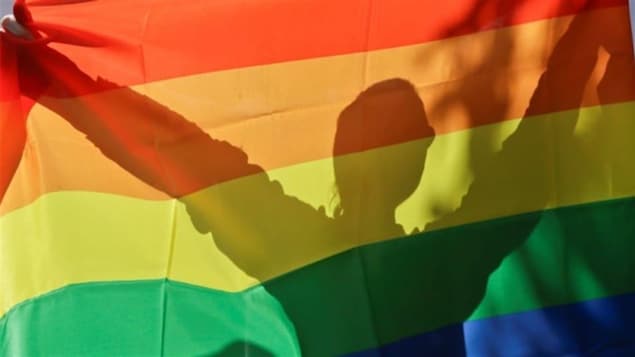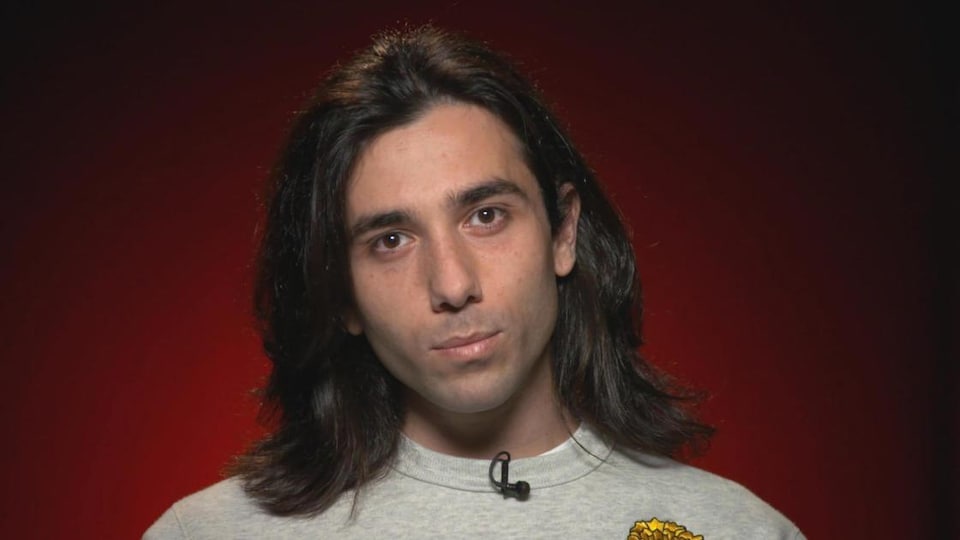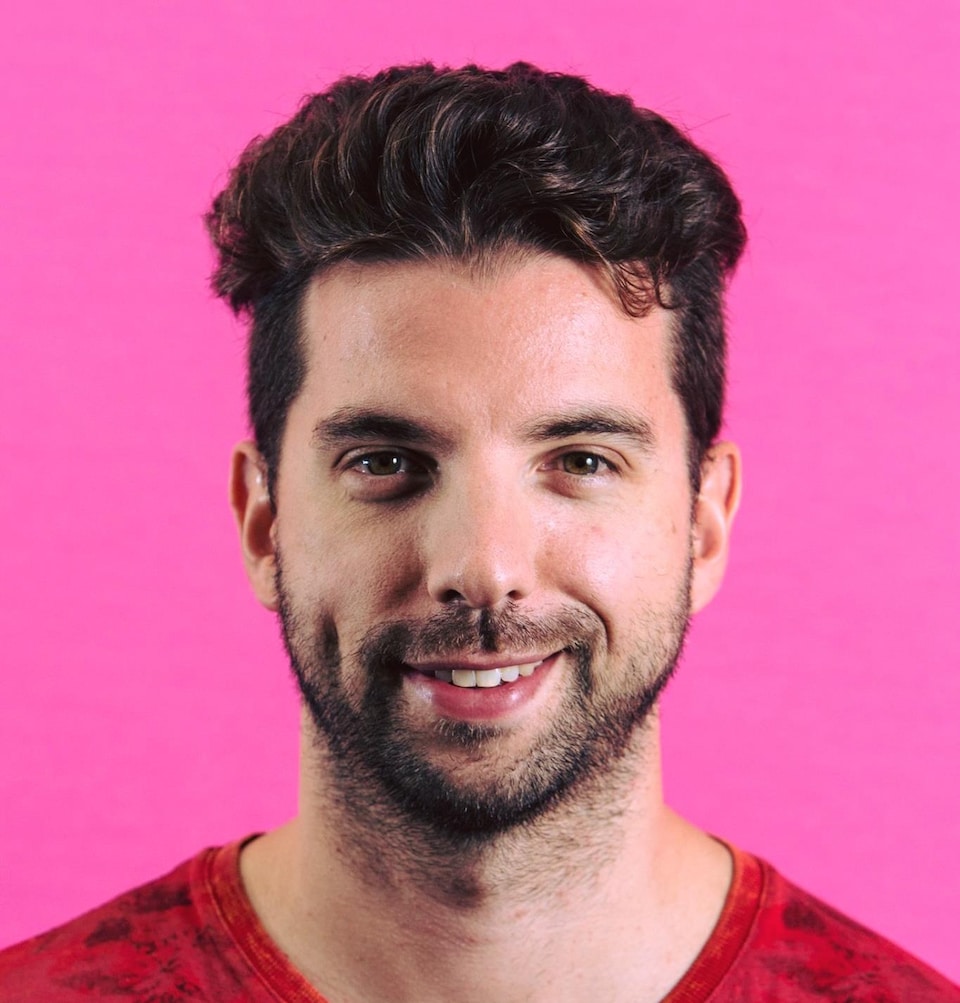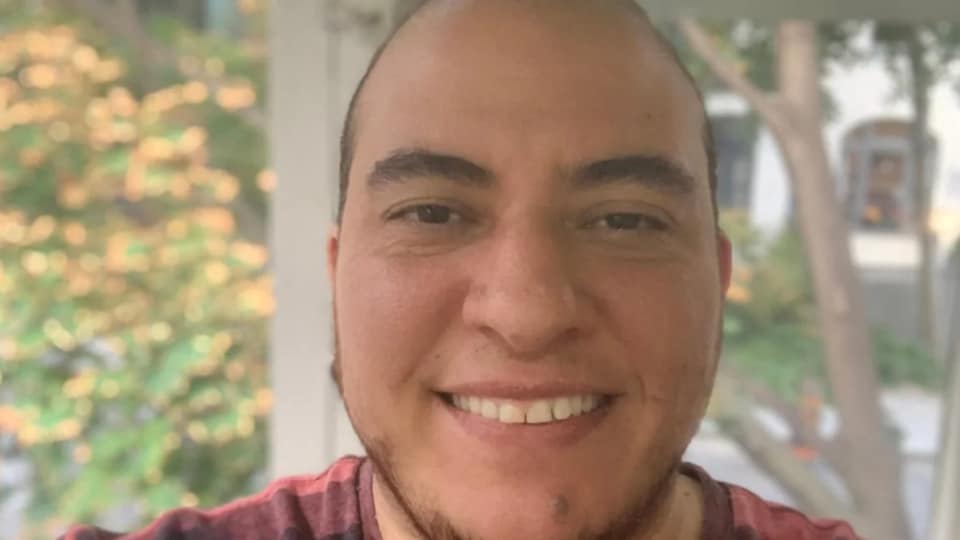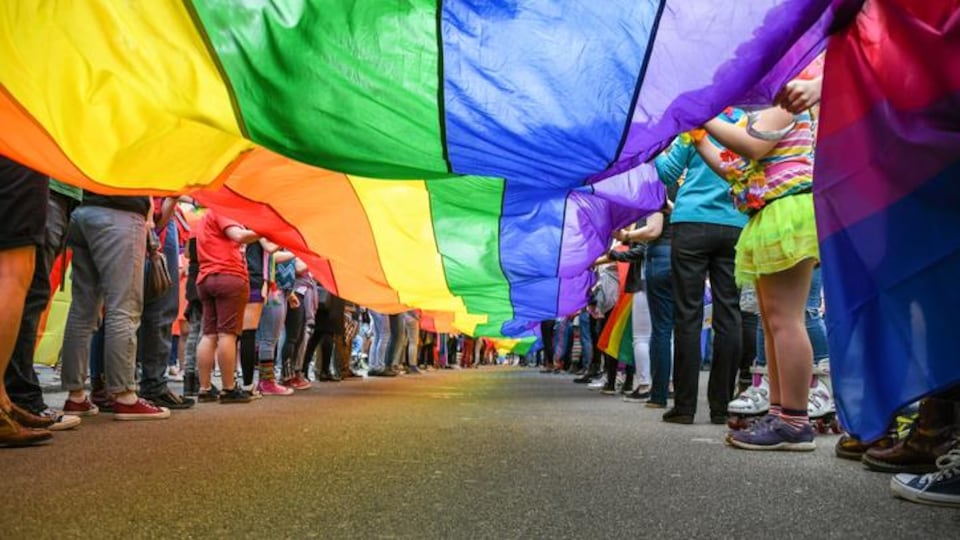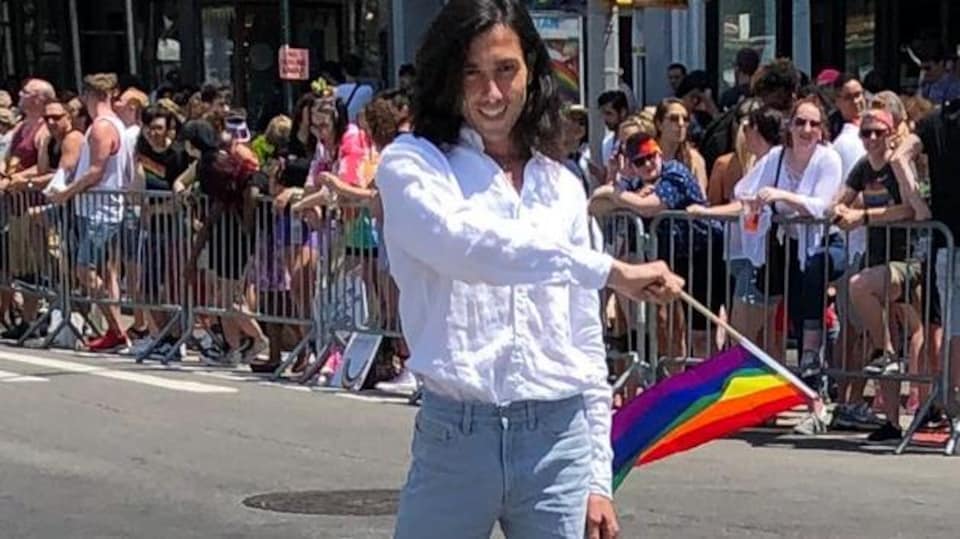Emin Dzhbrilov fled Chechnya in 2017.
I was a hairdresser and I was working that day when men in uniform came looking for me and kidnapped me because I was gay
, He says.
I was kidnapped, tortured and held in a secret prison for two weeks because I am gay, and when my captors released me, I only had one way out: to leave my country.
Amin fled to Russia, then traveled to Toronto to seek asylum with the help of Rainbow Railroad.
Rainbow Railroad is a Canadian non-profit organization that helps people from the LTGBTQIA+ community flee their countries when they are in danger and relocate them to safe countries that have partnerships with the organization.
But for a year, these emergency departures have been complicated by the pandemic, all flight restrictions and border closures, explains Eric Wright, Rainbow Railroad’s communications officer.
In 2019, Rainbow Railroad was able to transport more than 200 people from the LGBTQIA+ community to countries considered safe, such as France, Germany, the United Kingdom, or Canada.
It was really hard, but we’ve moved more than 70 people during the pandemic. We also helped people back home. The work we did was in the early stages and we have moved this work forward due to COVID-19, by providing financial support and forging more partnerships with organizations on site.
, he describes.
Uganda in particular made headlines for arrests of gay men. The organization was able to send financial support to help the defendants defend themselves in court.
The Internet, the lifeblood
Alex Dagman Munzour leads programming for Rainbow Refugee Association, a Vancouver-based organization that assists LGBT asylum seekers in Canada. Alex acknowledges that the year has not been easy for those still waiting to be resettled.
When the travel ban came into effect and the borders were closed, many people were ready to leave. They have obtained a visa to travel. Some found themselves stuck in limbo.
The resulting consequences are never simple: the notice to leave for work, the end of the lease. Some found themselves unable to meet their basic needs.
For people who have just arrived in Canada, this has also not been easy. Some were too excited to start a new chapter in their lives, had fewer career opportunities, faced social isolation and never really had the opportunity to receive the support needed for their financial and emotional well-being.
All this support has come online.
We were able to help people who were already in transit when the borders were closed, but there was no access to Canada, except for people who are in a situation that is at a very high risk to their security.
Currently, the Rainbow Refugee Association is waiting for the arrival of 12 people from Iran, Liberia, Syria, Egypt, Uganda and Bosnia, who are at the same time in Kenya, Turkey, Jordan or even Lebanon.
Alex says we receive hundreds of emails, and this allows us to provide them with information to help.
Pandemic challenges
Eric Wright explains that thanks to a network created with organizations in countries, aid can be deployed. Our partners provide us with information about people at risk
, He said.
The organization works closely with the governments of countries where vulnerable people are relocated. With the pandemic, some challenges have been added. They [les personnes en danger] You will not get a vaccine, getting on the plane is already difficult, and there are additional difficulties, but it is not the same procedure for those who travel for tourism or personal reasons.
On the part of Immigration, Refugees and Citizenship Canada, Communications Officer Isabelle Dubois specifies that at the beginning of May, there were 9,865 asylum applications (all categories combined) awaiting decision. This is without counting in-progress sponsorship requests. We’re supposed to work through the backlog in the next few months
, she adds.
Ms Dubois acknowledges that travel restrictions and restrictions, as well as teleworking for employees, have had a significant impact on the immigration system. We also recently launched a virtual interview pilot project to enable asylum seekers to conduct remote interviews.
, you specify in the email.
However, urgent departure remained a priority, and the federal government took charge of instituting quarantine and temporary support on arrival, when necessary.
In-person services for biometric information collection and other procedures, such as in-person interviews, are now resumed. For now, things are starting again, and interviews, we’ll see people start arriving again
Alex rejoices.
New life
Four years after arriving in Canada, Amin does not regret his choice. Having spent most of his life between guilt and fear of revenge, he says he has finally freed himself from the moral weight of religion and society to move forward more calmly.
You have to imagine a whole childhood spent believing that God did not accept this kind of thing [l’homosexualité]To live in shame and fear. Coming here made me realize that even if you are gay, gay or transgender, you will always be loved by God.
long road to recovery, To heal the wounded little boy inside me
Amin says. He uses the pronouns, he and she, depending on how he’s feeling that day. Sometimes I like to wear dresses, I feel that my femininity is stronger; Other days I wear pants and feel more masculine
, He says.
his hope? I hope the next generation will not go through what he went through. After years of paranoia over being assaulted, he can finally breathe and no longer have to turn around in the street for fear of being pursued. Today he is no longer in contact with people from his past and his hair grows proudly.
Rainbow Railroad hopes to help more than 200 people in emergencies cross international borders this year.

“Alcohol scholar. Twitter lover. Zombieaholic. Hipster-friendly coffee fanatic.”

